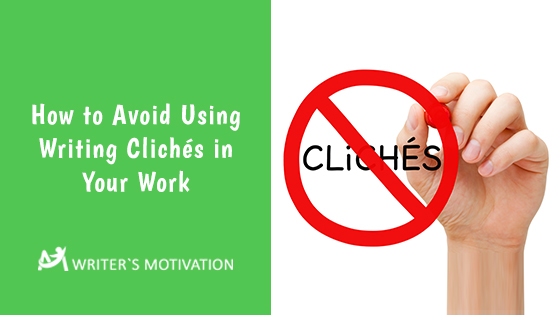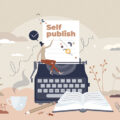How to Avoid Using Writing Clichés in Your Work

When it comes to writing truly original work, it is important that you stay away from clichés. The concept of clichés are concepts that are overly used. If you use clichés, you may run the risk of annoying potential readers. Remember that clichés are a great way to bore your readers.
As a rule, you should make sure to avoid clichés like the plague. This is easier said than done. Using clichés could be tempting because they are easy to use, and may even look good in your work. As a whole though, you should avoid clichés as much as possible.
Here are some tips for avoiding writing clichés in your work.
1. Identify the types of clichés
When it comes to avoiding clichés, it is important that you know how to identify the types of clichés. The more effectively you identify the types of clichés, the better you will be at avoiding them. Here are the types of clichés, and some examples.
Figurative cliché
These clichés are figures of speech that have been overused to the point that readers get tired of hearing them. They may have sounded good when they were first introduced to the public, but have since lost their relevance and popularity.
Examples
- Think outside the box
- Needle in a haystack
- Down on his luck
- Wise beyond his years
- All for one and one for all
- All that glitters is not gold
Characterization cliché
Aside from figure of speech clichés, there are also clichés when it comes to writing characters. Remember that there are already set character archetypes, and you may be tempted to use them in your writing. However, if you use characterization clichés, you will run the risk of making your characters too predictable, and maybe downright boring.
Examples
- Bad Boy: The gorgeous and misunderstood guy who can’t stay out of trouble.
- Mary Sue: The perfect hero who can do no wrong.
- The loner: The character who just wants to be left alone.
- The wise sage: The old person who dispenses wisdom and calm
- The gorgeous idiot: A good looking but intellectually challenged character.
Plot cliché
Plot clichés are plots that have been used to such an extent, that they have become predictable and dull. If you use plot clichés, your readers will see the ending a mile away, and just get bored with the overall storyline.
Examples
- The star crossed lovers: A love affair that is fated to have a tragic end.
- Haunted house: A house that visitors fear to tread.
- Happily ever after: A typical fairy tale ending.
- The idiot savant: A socially challenged person who is good at everything he or she does.
- The chosen ones: An unassuming and humble character who is destined to save the world.
2. Avoid using myths and legends
While myths and legends may seem like a great source of inspiration for your work, you should remember that these myths and legends have been told and retold for centuries. If you want to make your work as original as possible, it is best that you stay away from them.
3. Don’t use societal issues just for the sake of plot
In the past few years, there has been a practice wherein people use societal issues to create plot for their writing. This may seem like a good idea, because people will always flock to societal issues. This is the nature of human beings.
We love to sensationalize issues such as war, death, racism, and murder just for the sake of a good story. If you are going to write about these issues, you could do so. However, you should make sure that you give these issues the right amount of coverage and respect they deserve. Don’t write about a specific issue, just for the sake of getting reader’s attention.
4. Be emotionally invested in your topics
If you want to make your writing as original as possible, and never have to resort to clichés, you should make sure that you are emotionally invested in your topics. Remember that a key reason why people use clichés in their writings, is because they just want their work to be popular. However, they are not emotionally invested in the topic they are writing about. If you are going to choose a topic, you should make sure that you truly care about the topic, and that you want to write about it. If you are truly sincere, your rears will pick up on your fervor right away.
Conclusion
If you are going to create original work as a writer, it is important that you never use clichés. Remember that clichés are overly used concepts, and they will do nothing for your work, except make it look unoriginal. With these tips, you’ll be able to identify these clichés, and avoid them as effectively as possible.
PS: Having a hard time choosing a self-publishing company? Read these Writers Republic reviews, and see what they have to offer.
Recommended Posts
GETTING PUBLISHED
WRITING
PUBLISHING
MARKETING







